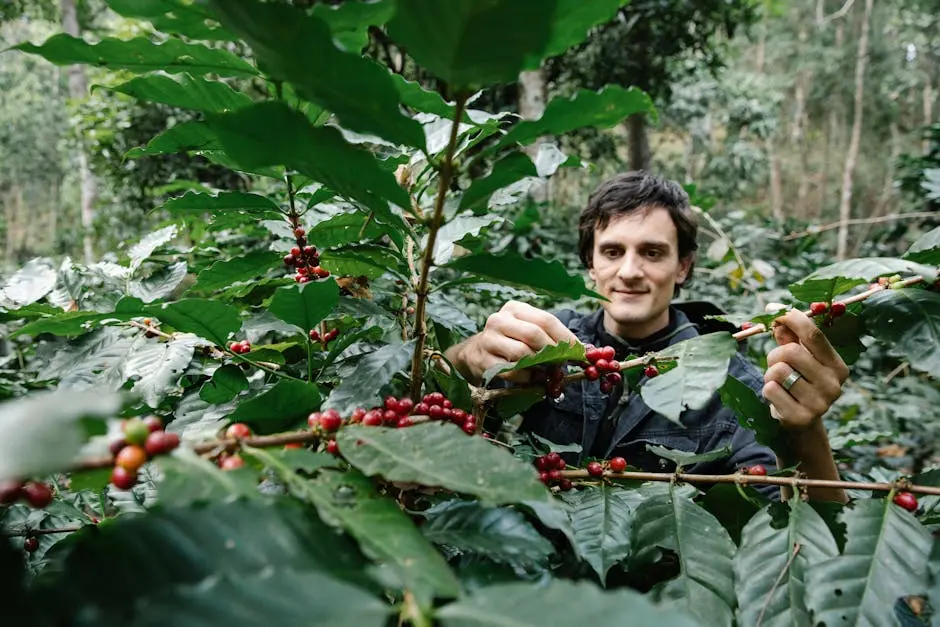
What makes the coffee quality sustainable and ethical?
Understanding what constitutes sustainable and ethical coffee quality is essential for consumers and producers alike. It not only impacts the taste of your morning brew but also the environment and the communities involved in its production. This blog will break down the key factors that contribute to sustainable and ethical coffee quality.
Step 1: Fair Trade Practices
Explore how fair trade ensures that farmers receive a fair price for their coffee, promoting economic sustainability.
In essence, fair trade creates a more equitable system where farmers are not just seen as producers, but partners in the coffee journey. This practice addresses poverty and enhances community welfare, which is crucial for sustainable coffee quality.
Moreover, by enforcing fair wages, farmers can invest in their communities and improve their production methods. This results in not just a better quality of life but, eventually, a better quality of coffee.
Furthermore, fair trade certification involves rigorous standards that promote transparency and accountability. This ensures that consumers choose ethically sourced coffee, enhancing their connection to the product.
Step 2: Organic Farming Methods
Learn about organic farming methods that avoid harmful pesticides and support healthier ecosystems.
Organic coffee farming practices not only protect the land but also ensure that the beans produced are free from toxic substances that could harm both the environment and consumers.
Additionally, organic farming promotes biodiversity by fostering a variety of plant and animal life in coffee-growing regions. This rich ecosystem contributes to more complex flavors in the coffee, enhancing quality.
Also, coffee grown organically tends to retain more moisture in the soil, leading to better growth and resilience against drought. This is essential as climate change continues to impact coffee production worldwide.
Step 3: Environmental Impact
Discover the importance of growing coffee in ways that protect biodiversity and minimize deforestation.
Sustainable coffee production practices are vital for maintaining the health of our planet. By using agroforestry methods, coffee is often grown alongside other trees and plants which support local wildlife and improve soil quality.
Moreover, preserving forest areas aids in carbon sequestration, crucial for combating climate change. The connection between coffee farms and forest preservation is more significant than many people realize.
By supporting coffee brands that prioritize environmental stewardship, consumers can make a choice that contributes to a healthier planet while enjoying a superior cup of coffee. Remember, sustainability should never be sacrificed for taste!
Step 4: Community Support Initiatives
Understand how supporting local communities strengthens the coffee supply chain and uplifts farmers.
When coffee companies invest in local farming communities, the benefits ripple through the entire supply chain. This support can manifest in improved education, healthcare, and infrastructure, which are essential for long-term sustainability.
Furthermore, when farmers receive training about best practices, not only does the quality of their coffee improve, but they also become empowered to share their knowledge with others. This creates a cycle of improvement that benefits all.
Ultimately, strong community ties mean that farmers are more likely to adhere to sustainable practices, ensuring that the quality of coffee remains consistently high, all while creating a nurturing environment for future generations.
Step 5: Transparency in Sourcing
Delve into why transparency in sourcing is crucial for consumers wanting to make informed choices about their coffee.
Transparency allows consumers to see exactly where their coffee is coming from and how it’s produced. This knowledge empowers buyers as they can choose brands that align with their values and commitment to ethical practices.
Additionally, when companies are open about their sourcing, it fosters trust and creates loyalty among consumers who prioritize ethical consumption. They tend to be more passionate about brands that clearly communicate their production practices.
Moreover, transparency promotes accountability. It encourages companies to maintain high standards in sustainability and ethics, ultimately leading to higher coffee quality and a more robust industry.
In Summary
Embracing sustainable and ethical coffee practices is a collective effort that yields benefits for everyone involved, from farmers to consumers. By understanding and prioritizing these factors, we can all enjoy a better cup of coffee while contributing to a healthier planet.

